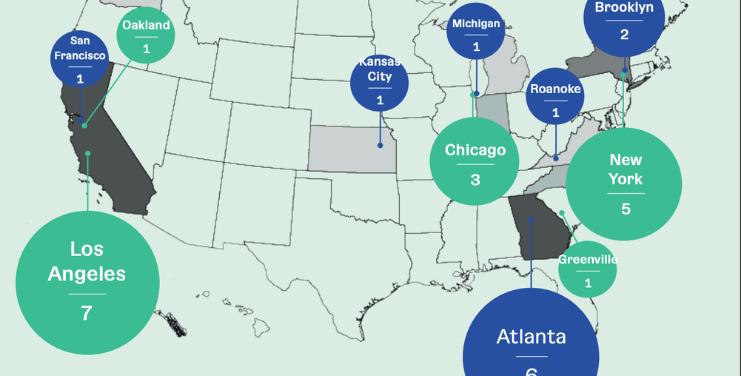A new LinkedIn study of 2,000 Black professionals in the United States found that Black workers are not getting the support they need from their colleagues, citing racism and discriminatory practices that hold them back. 46% of respondents indicated they have experienced blatant discrimination and microaggressions at work across industries. 40% of respondents said their companies are more talk than action around diversity and equity, and have not made any material changes to policies or culture.
Black professionals recognize that lip service could have material consequences for workplaces that have failed to take action. Some 30% of respondents said they are thinking of leaving their job due to lack of advancement opportunities because of discrimination, willing to take their chances in a pandemic job market than continue at companies where racism, discrimination and inaction are prevalent. One silver lining from the pandemic coinciding with a racial equity movement is the recruiting industry is aiming to fix structural inequities in the workplace and are revamping their offerings to build-in equity from the recruiting phase and beyond.
Stephanie Lampkin, founder and CEO of Blendoor, a diversity analytics and hiring software company with nearly $2 million in venture backing, said she experienced a 400% increase in the number of companies that contracted Blendoor directly after the deaths of George Floyd and Breonna Taylor. I experience quite a bit of cognitive dissonance because whenever an unarmed Black person is killed, my business increases significantly, Lampkin told The Plug. It’s been a rough few years, to say the least, because there are mixed emotions. I recognized there was a lot of diversity theater happening and I was a puppet in it.
Lampkin describes companies who used Blendoor, many of which are Fortune 500 members, where the interaction felt like employers checking a box rather than attempting to instill real change, a pattern highlighted in LinkedIn’s study. Recently Lampkin pivoted the company’s product to assign a score to companies based on how authentic and actionable their DEI efforts are among prospective employees and the company’s current workforce. Everything from publicly available EEOC (Equity Employment Opportunity Commission) data to ESG reports and public statements on diversity and inclusion is factored into Blendoor ‘s proprietary model to produce a score from 1 to 100, with 100 being the best score.
Lampkin started the model on tech companies. Intuit, a Silicon Valley-based fintech company ranked number one with a score of 85, while Garmin, the GPS and location-based wearable tech company, ranked 200th with a score of 23. The lowest-ranked big five tech company was Netflix at 26th place with a score of 69. No tech companies scored higher than 85 of 100. The technology sector has earned a reputation for lack of representation with white, male, and Asian employees and founders over-indexing and simultaneously being gatekeepers for change.
Lampkin herself has experienced the many microaggressions and the discrimination highlighted in the Linkedin study, enduring within an inequitable system she is working to fix. Each year companies like LinkedIn and Glassdoor publish lists of the best places to work, using methodology that may not factor in diversity, equity and inclusion as heavily as professionals of color would.
The company’s Best Places to Work List is compiled by a black box algorithm based partly on user-generated data from the site. As of July 2020, only 2% of Glassdoor employees identified as Black, the likelihood of one of the most discriminated groups having a hand in building a workplace satisfaction model significantly goes down with such low representation.
A Glassdoor spokesperson said the company will begin using more stringent D&I considerations in its ‘Best Places to Work ‘ algorithm in 2022 and beyond. Glassdoor declined to comment further for this story. In the meantime, reports of what Black professionals experience in the workplace is discouraging. Quantifying this experience authentically could go a long way to give Black employees a sense of what they can expect at companies and even change their experiences for the better.








